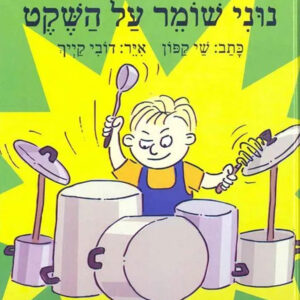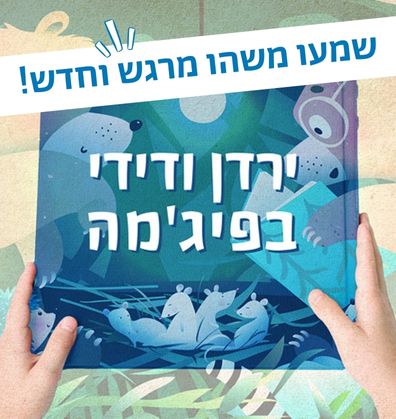עיבוד מחורז למעשייה משעשעת אודות חכמי חלם, המדגימה כיצד התייחסות מוגזמת למראה חיצוני ולסמלי מעמד יכולה להוביל למצבים מגוחכים. הסיפור, מלווה באיורים של שי צ'רקה, מכיר לילדי הגן את "חוכמת חלם", אחת הדוגמאות המפורסמות לפולקלור יהודי, ועוסק בדרכים לתת כבוד ולקבלו.
נוֹשְׂאִים קְשׁוּרִים:
קְבוּצַת גִּיל: גַּנִּים צְעִירִים
פְּעִילֻיּוֹת בְּעִקְבוֹת הַקְּרִיאָה
בפולקלור היהודי ידועים סיפורים רבים על חכמי חלם, המתרחשים על רקע החיים בעיירה חלם שבפולין לפני כמאתיים שנה. הסיפורים עברו מפה לאוזן בגרסאות רבות ונקבצו באוספים של שלום עליכם, של יצחק בשביס זינגר ועוד. חכמי חלם מתוארים כאנשים טיפשים, שמעלים פתרונות מגוחכים לבעיות העיירה. הסופר יצחק בשביס זינגר חתם את קובץ סיפורי חלם שלו באמירה "כל העולם הוא בבואה גדולה של חלם". אולי סיפורי חלם אהובים ומשעשעים דווקא כי כל אחד מאיתנו נוהג לעתים בניגוד להיגיון.
"כל הרודף אחר הכבוד, הכבוד בורח ממנו" (מסילת ישרים כו)
הסיפור על נעלי הזהב של המלך של חלם עוסק באופן משעשע ואירוני בדרכים לחלוק כבוד ולקבלו ומעורר מחשבות רחבות יותר בנושא הכבוד. מדוע אין המלך זוכה לכבוד המגיע לו? מה קורה לאדם או לחברה שעסוקים בגינוני כבוד חיצוניים? במסורת היהודית יש התייחסות רחבה ועמוקה לנושא הכבוד. מקורות רבים מזהירים אותנו שהרדיפה אחר הכבוד גורמת לאדם להתבזות, ועל האדם להיות זהיר יותר בכבודם של אחרים ועסוק פחות בִּכבוד עצמו.
עֳתָקִים שֶׁחֻלְּקוּ:
110,000
הוֹצָאָה לָאוֹר:
דני ספרים
שְׁנַת חֲלֻקָּה:
תשע"ד 2013-2014


 החולם הקטן
החולם הקטן נוני שומר על השקט
נוני שומר על השקט
